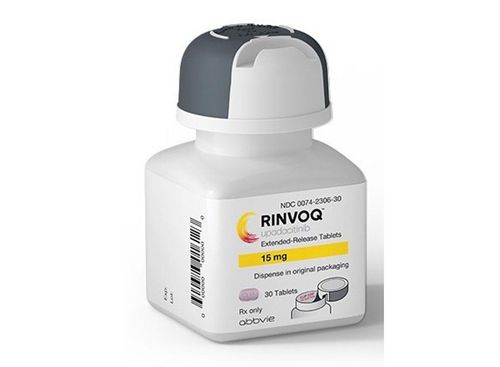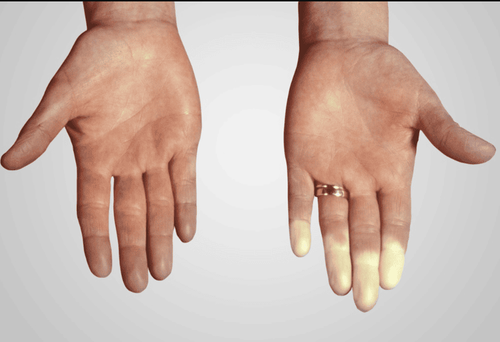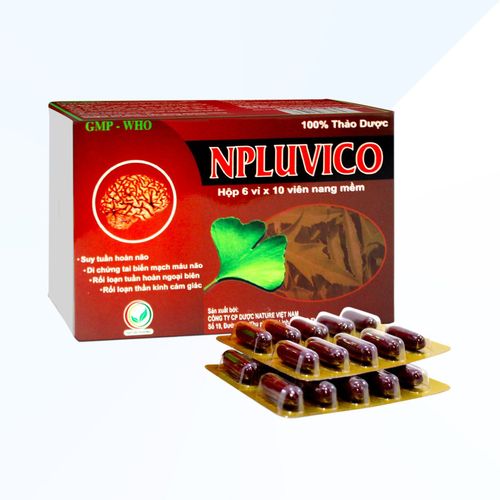This is an automatically translated article.
Mixed connective tissue disease is an autoimmune disease that occurs more commonly in young and middle-aged women. The disease is characterized by symptoms of damage to multiple organs, which overlap between the clinical features of several different autoimmune diseases.
1. Overview of mixed connective tissue
Mixed connective tissue disease is a combination of signs and symptoms of different disorders, mainly lupus, scleroderma, and polymyositis. There has even been controversy surrounding the issue: is mixed connective tissue really a separate disease, or a form of lupus erythematosus or systemic scleroderma? It is for this reason that mixed connective tissue disease is sometimes referred to as an “overlapping syndrome”.
In mixed connective tissue disease, the symptoms of these separate conditions often do not appear at the same time. Instead, they tend to occur in sequence over several years. This has made the differential diagnosis more complicated.
Early signs and symptoms of the disease often involve the hands. The patient's fingers may be puffy, white, and numb, usually from exposure to cold temperatures. In later stages, several organs - such as the lungs, heart, and kidneys - may also be affected. There is no cure for mixed connective tissue disease. Signs and symptoms are usually treated and controlled with certain medications, such as prednisone.
2. What are the symptoms of connective tissue disease?
Early warning signs of mixed connective tissue disease may include:Feeling unwell: Fatigue, unusual feeling, malaise in this person may be accompanied by a low-grade fever;

Người bệnh trong trạng thái mệt mỏi và cảm thấy không khỏe
Cold and numb fingers or toes (Raynaud's syndrome): When having a cold or feeling stressed, the patient's fingers or toes may turn white, then bluish. When warmed, the fingers or toes turn red; Swollen fingers or hands: Some people may also experience swollen fingers; Muscle and joint pain: Joints can become inflamed, swollen and deformed - similar to those of rheumatoid arthritis; Rash: Red or reddish brown patches may appear on the knuckles. You should see your doctor if you experience any of the symptoms listed above, especially if they interfere significantly with your daily life and routine. Especially for people who have been diagnosed with lupus or a related syndrome, if they see the above signs, it is even more important to pay attention to the risk of mixed connective tissue disease.
3. Causes of mixed connective tissue
The exact cause of mixed connective tissue disease is still unknown.
Overall, mixed connective tissue is an autoimmune disorder. In it, your immune system - which is responsible for fighting disease, mistakenly attacks healthy cells.
Particularly for connective tissue diseases, the immune system will attack the fibrous structures - which play the role of creating the body's supporting framework. Researchers are looking at what proteins the immune system produces to cause mixed connective tissue disease .
Some people with mixed connective tissue disease with a family history experience the same condition. However, the role of genetic factors in the disease is still unclear.
Mixed connective tissue disease can happen to anyone of any age, but is most common in women under the age of 50.

Bệnh mô liên kết hỗn hợp thường xảy ra ở phụ nữ dưới 50 tuổi
4. Complications
Mixed connective tissue disease can lead to serious complications, such as:
High blood pressure in the lungs (pulmonary hypertension): This condition is a major cause of death in people with tissue disease mixed link ; Interstitial lung disease (diffuse lung parenchyma): May cause scarring in the lungs, affecting the patient's ability to breathe; Heart disease: Parts of the heart can become enlarged, or inflammation appears around the heart. Heart disease is the cause of death in about 20% of patients with mixed connective tissue; Kidney failure: About a quarter of people with mixed connective tissue have kidney problems. Sometimes the gradual damage can lead to kidney failure; Gastrointestinal tract injury: Patients may experience abdominal pain and problems digesting food; Anemia: About 75% of people with mixed connective tissue disease have iron deficiency anemia; Tissue death (necrosis): Patients with severe Raynaud's syndrome are at risk for finger necrosis; Hearing loss: In one study, nearly 50% of mixed connective tissue patients had hearing loss. However, more research is needed to determine this complication.
5. Diagnosis and treatment
Depending on clinical symptoms, mixed connective tissue should be differentiated from other systemic autoimmune diseases. The disease is closely related to the autoimmune ribonucleoprotein antibody RNP-70. In addition, doctors often do other tests to determine kidney, heart, and lung function.
Corticosteroids are commonly used to control the signs and symptoms of mixed connective tissue disease. While this drug is effective, it also comes with some risks.

Thuốc Corticosteroid giúp kiểm soát tình trạng bệnh mô liên kết hỗn hợp
The doctor will monitor the patient for treatment side effects, such as osteoporosis, muscle weakness, and infection. Patients need to supplement calcium and vitamin D to limit these side effects. In general, the prognosis of the disease is quite good, more than 80% of patients live more than 10 years.
In summary, mixed connective tissues are heterogeneous disorders characterized by inflammation of the skin, joints, and other structures rich in connective tissue. The pathogenesis is due to autoantibody production and cell-mediated immune abnormalities. Symptoms can vary considerably from patient to patient, and there is overlap in clinical manifestations among several other autoimmune diseases. Treatment is primarily symptomatic, taking a similar approach to lupus erythematosus, systemic sclerosis, polymyositis, or rheumatoid arthritis.
To register for examination and treatment at Vinmec International General Hospital, you can contact the nationwide Vinmec Health System Hotline, or register online HERE.
References: Mayoclinic.org













